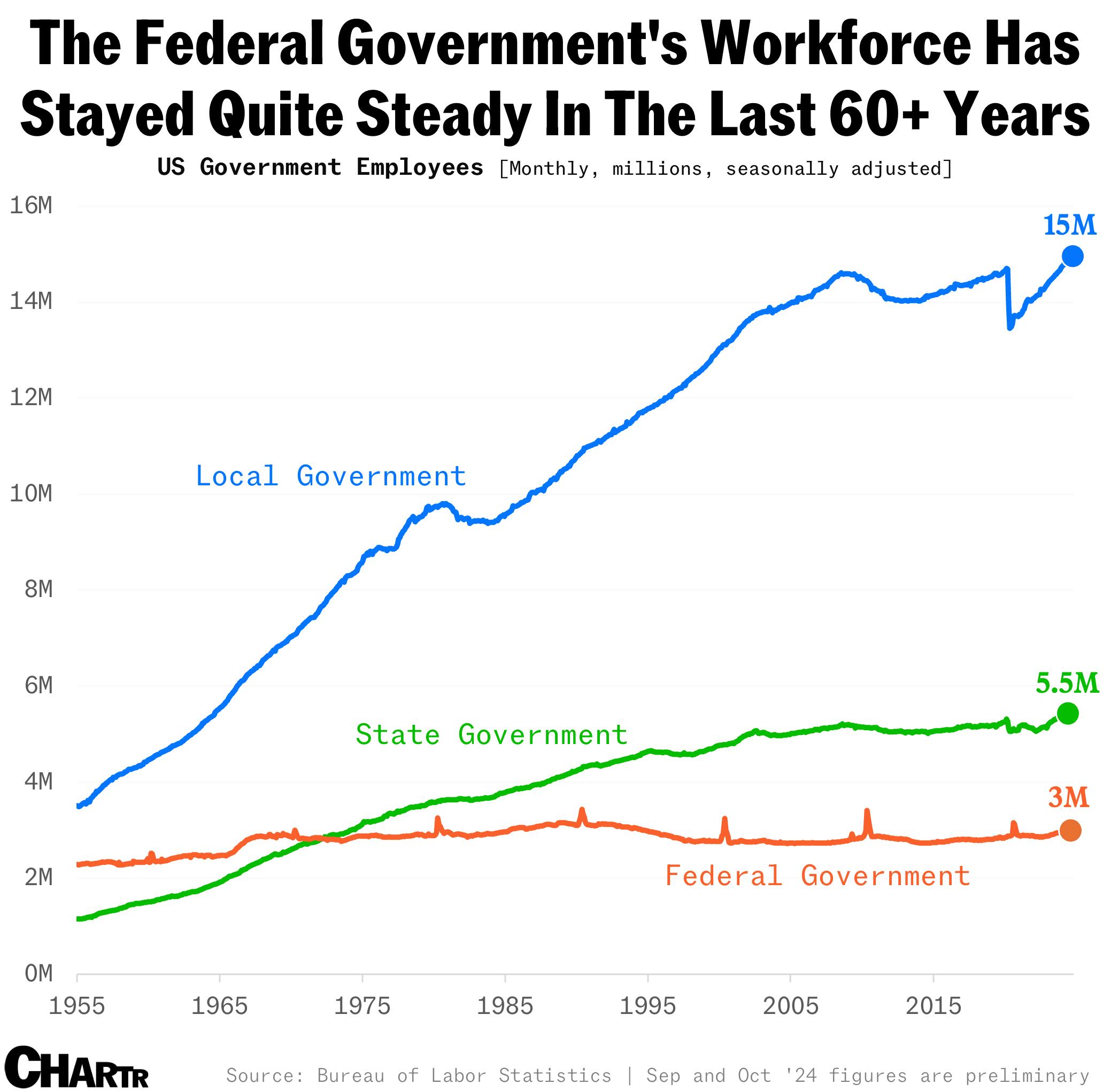The Department of Government Efficiency is coming for fed agencies and contractors
It might not find that many permanent jobs to cut at the federal level.
Vivek Ramaswamy, who only dropped out of the GOP presidential nomination race himself at the start of the year, yesterday warned that certain federal agencies could be “deleted outright” as part of his and Elon Musk’s planned work with the Department of Government Efficiency.
Though it’s still unclear how far the advisory body, announced by President-elect Trump last Tuesday, can actually go in enacting some of the moves its chiefs have been touting, Musk has spoken confidently about the potential for major changes to how the US government is run, like wiping “at least $2 trillion” from current spending and reducing the federal agency count by more than 75%.
The Department of Government Efficiency, or DOGE (get it?), will work to “dismantle Government Bureaucracy, slash excess regulations, cut wasteful expenditures, and restructure Federal Agencies,” per Trump’s statement. While inflation-adjusted federal spending has increased steadily over the past few decades, direct employment within the federal government has remained surprisingly stable over the past ~70 years. Per data from the BLS, employee counts at America’s state and local governments have each risen by more than 300% since 1955, whereas the federal government workforce has risen just 31% in the same period — perhaps a reason that nonpermanent federal contractors are likely to be such a focus for DOGE.
